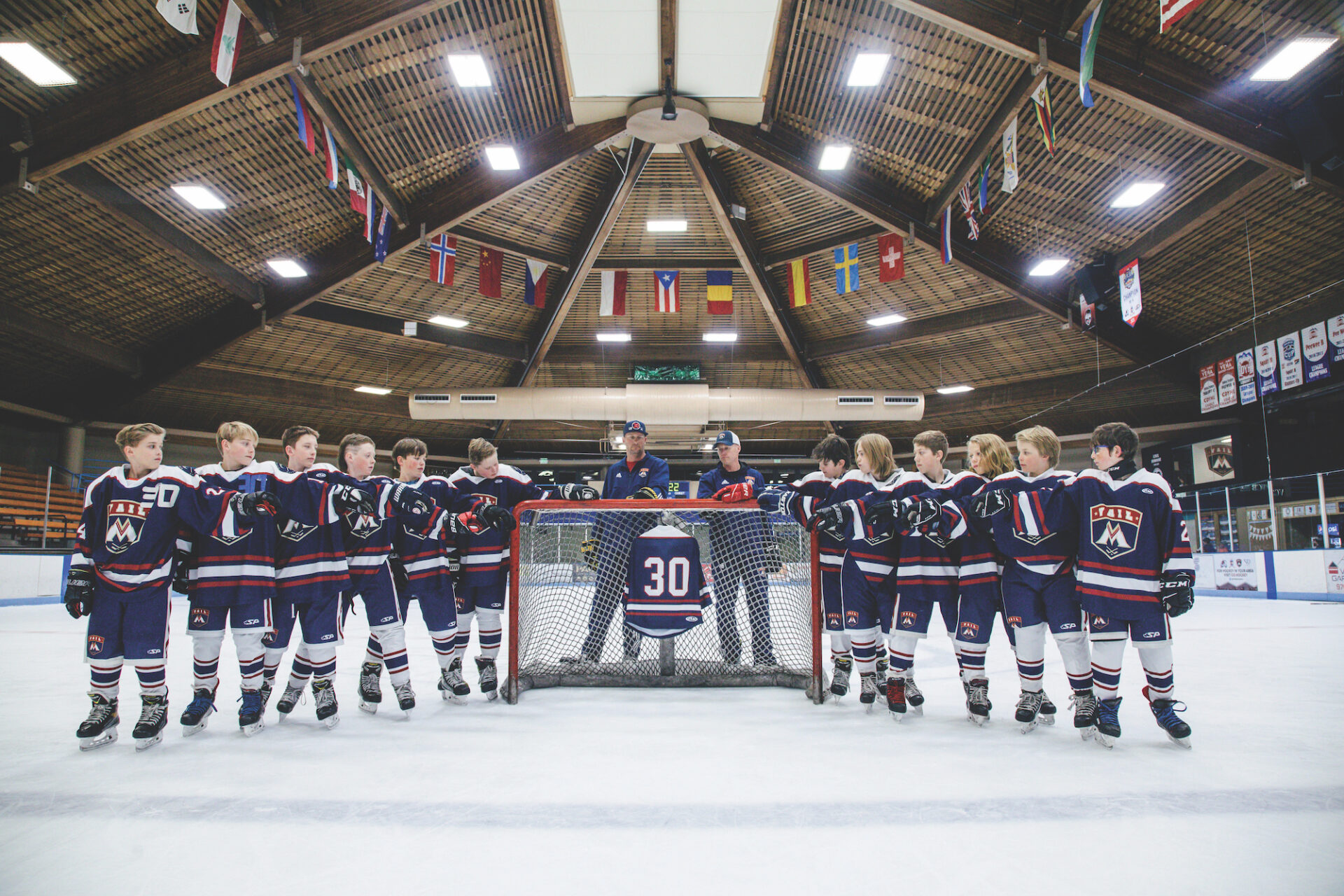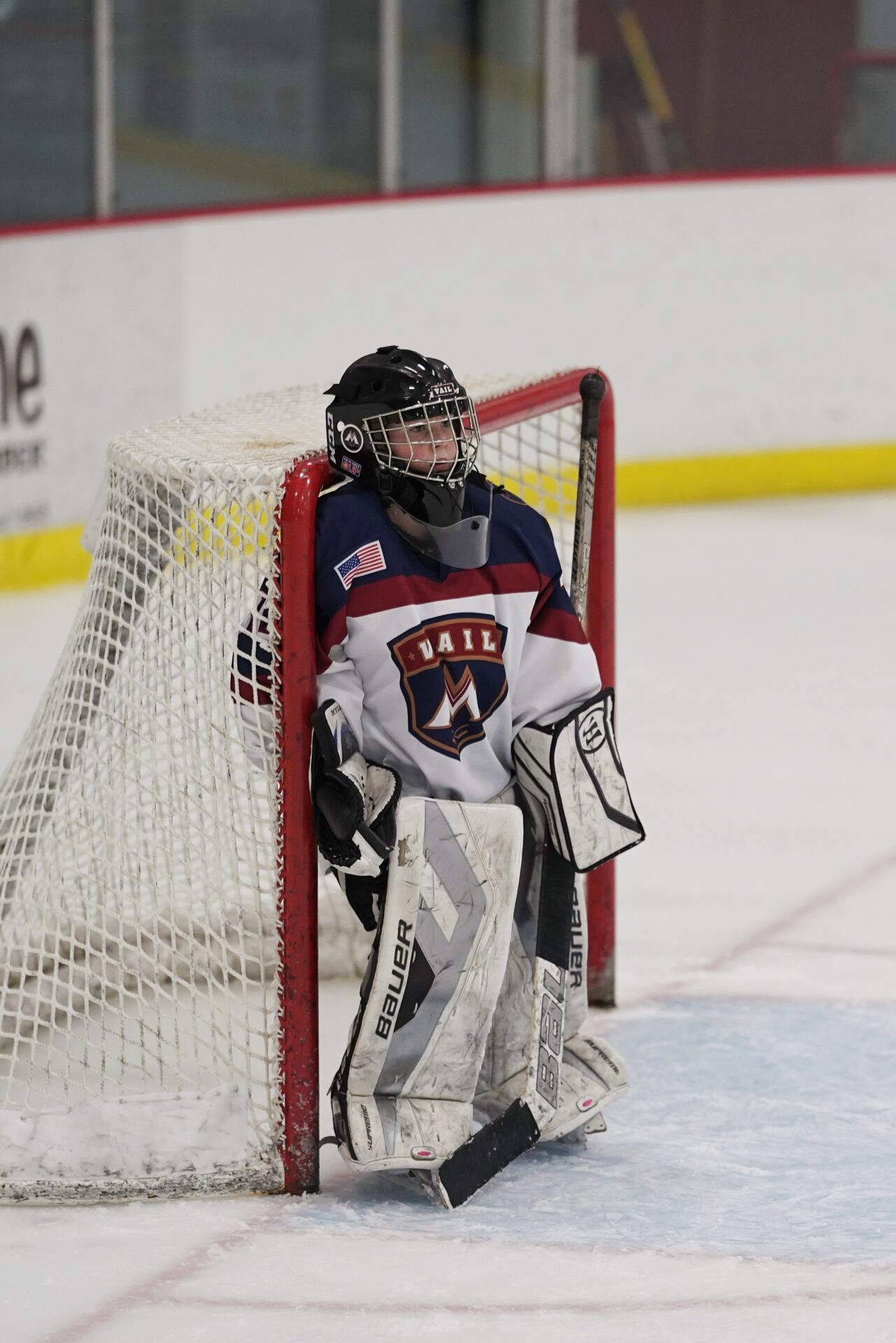Ice hockey is a fast-paced, team-oriented game that teaches kids life skills like responsibility, respect and discipline. But, the biggest draw seems to be the bonds both kids —and their parents— develop.
“It’s unique, in a way, to other sports in that everyone comes together; even the parents are close. There’s an excitement around hockey, because it’s very fast-paced, so everyone’s cheering and involved in the same goal,” says local hockey mom Denise Rahe.
Her son, 14-year-old Nathan Rahe, jokes that when you’re stuck in a cold rink together, you tend to get close, but the friendships extend beyond the arena.

Photo Courtesy of Sheri Innis Photography
“Hockey becomes secondary to the bonds they have with their teammates. It’s all about the experience —playing knee hockey, pizza parties, staying with their friends in a hotel,” says Kristi Scheidegger, executive director of Vail Mountaineer Hockey Club.
Many kids get involved because their dad, sibling or, in the case of 17-year-old Emily Law, grandma played hockey. Law enjoys the team aspects, like “having team dinners and rocking out to music in the locker room before games and encouraging team members to do their best and seeing a bunch of cool places in Colorado,” she says.
The hockey community also acts as a support system.
“Hockey was the one thing that always kept me going,” says college-student Jayden Mather. “On the days when I was having a really hard time at school, all I could think about was that I had hockey practice later on, and that would give me the motivation to keep going. Being on the ice with my team, the camaraderie, the fun environment, the adrenaline, the focus and challenge of being a goalie, the intensity of the game, having something that was challenging and exciting to put my attention on and get my mind off school were all things that really helped me.”
Last season, the hockey community showed its strength after 11-year-old Lewis Browning died tragically in the Lionshead parking structure. Less than 12 hours later, his team manager and coaches made the difficult decision between “staying home and grieving alone or being the cohesive team that Lewis loved and traveling to their upcoming tournament to grieve together, share stories together, cry together and skate together,” says team manager Ande Murray.

Support, flowers and condolences poured in from teams across the state, and hockey sticks throughout the community still read: Play for Lewis #30.“The Mountaineer organization is a family, and when tragedy sadly and unexpectedly struck us last January, every single coach, player, parent and sibling stepped up to help in ways that I can’t even put into words,” Murray says. “The Mountaineer teams continued to do what Lewis loved for the rest of the season: play hockey, in honor of their teammate.”
Growing Numbers
With the Avs winning the Stanley Cup last season, the 2022 U.S. Olympic Women’s Hockey Team’s silver medal and local efforts to make the game more accessible in the Vail Valley, Vail Mountaineer Hockey Club continues to expand. This season, it added three more competitive travel teams and has seen a 171% increase in its girl’s program since 2018. About five years ago, Vail Mountaineers’ board of directors made it a priority to bring more girls into the game.
“Our numbers are growing, and hockey is growing nationwide,” Scheidegger says, crediting the National Hockey League’s nationwide Learn to Play program, as well as Mountain Recreation and Vail Recreation District, which introduce kids to hockey and make it affordable. “We offer the lowest hockey registration fees in Colorado because of our amazing fundraising and sponsors. Because of our incredible network, we subsidize 40% of costs.”